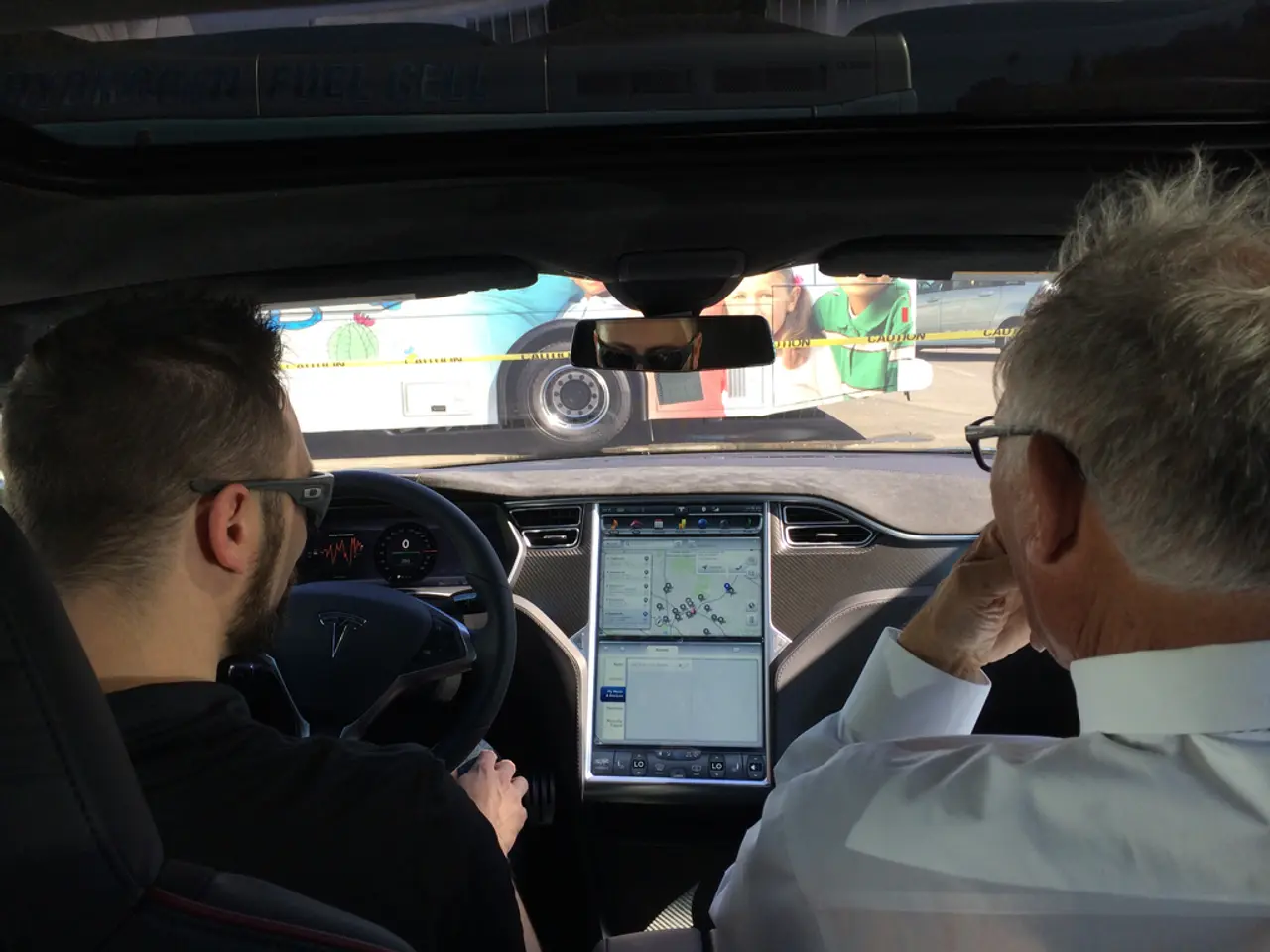Senators Pressure Federal Trade Commission to Examine Data Exchange Methods by Automobile Manufacturers
Automakers Under Fire for Sharing Consumer Data with Data Brokers
A recent letter from Senators Ed Markey and Ron Wyden to the Federal Trade Commission (FTC) Chair, Lina S. Khan, has highlighted concerns about General Motors (GM), Honda, and Hyundai sharing millions of Americans' driving data with data broker Verisk Analytics without proper consumer consent.
According to the letter, these automakers have been accused of using deceptive practices to enroll consumers in data-sharing programs and misrepresenting the benefits of their programs. The letter points out that GM, Honda, and Hyundai failed to obtain informed consent from consumers before sharing their data, and used manipulative design techniques to coerce consumers into enrolling in their respective Smart Driver, unnamed, and Driving Score programs.
The letter further mentions that GM sent its customers' location data to an unnamed third party from 2017 to 2019. GM shared data from cars enrolled by drivers in the Smart Driver program with Verisk and, between 2018 and 2024, with LexisNexis Risk Solutions. Honda shared data from 1.7 million vehicles with Verisk between 2018 and 2024, and Honda shared data from 97,000 cars with Verisk between 2020 and 2024.
In addition, the letter states that Hyundai automatically enrolled drivers in its Driving Score program, sharing their data with Verisk, without informing them during the process of enabling internet connectivity for a new car. GM also confirmed to Senator Wyden's staff that it shared location data on all drivers who activated the internet connection for their GM car, even if they did not enroll in Smart Driver.
The letter also points out that Verisk's contracts with automakers and insurers did not require that driver telematics data only be used to provide discounts. Determining if insurance companies in fact used telematics data sold by Verisk to raise premiums, as opposed to using this data solely for discounts, would require a manual review of insurance industry filings to state insurance regulators.
Some automakers may have deceived consumers by exclusively advertising their data-sharing programs as a way to lower insurance bills, without revealing that some insurers might charge some drivers more based on their telematics data. Only two states - Louisiana and Montana - currently prohibit the use of telematics data to raise insurance premiums, while California only permits telematics data to be used for mileage verification.
In response to the concerns raised in the letter, the Senators have urged the FTC to investigate these automakers for disclosing millions of Americans' driving data to data brokers without proper consumer consent. The letter highlights recent findings from investigative reports and oversight by Senator Wyden's office, which uncovered that General Motors (GM), Honda, and Hyundai shared data with data broker Verisk Analytics.
The letter also mentions that Sky News reported in 2019 that GM provided an "in kind" investment of driver data to a British data broker named Wejo, alongside a cash investment in the company. Wejo shut down operations in May 2023, the same month and year that GM told Senator Wyden's office that it stopped providing location data to its unnamed partner.
GM stopped sharing location data with Company A in May 2023, but continues to refuse to identify this partner. Oregon's state insurance regulator confirmed to Senator Wyden's office that they are aware of insurers using telematics as a component in determining rates, with some cases resulting in higher premiums for consumers.
The Senators' letter underscores the need for transparency and consumer protection in the use of telematics data by automakers and insurers. The FTC's investigation into these automakers could lead to increased consumer awareness and protections in the use of this data.
Read also:
- Elon Musk accused by Sam Altman of exploiting X for personal gain
- Comparing the value of top electric scooters: Kinetic DX versus Bajaj Chetak versus TVS iQube - Which one offers the best bang for the buck?
- Tech tycoon Elon Musk alleges Apple is preferring OpenAI, sparking potential lawsuits contemplation
- China's Automotive Landscape: Toyota's Innovative Strategy in Self-Driving Vehicles








